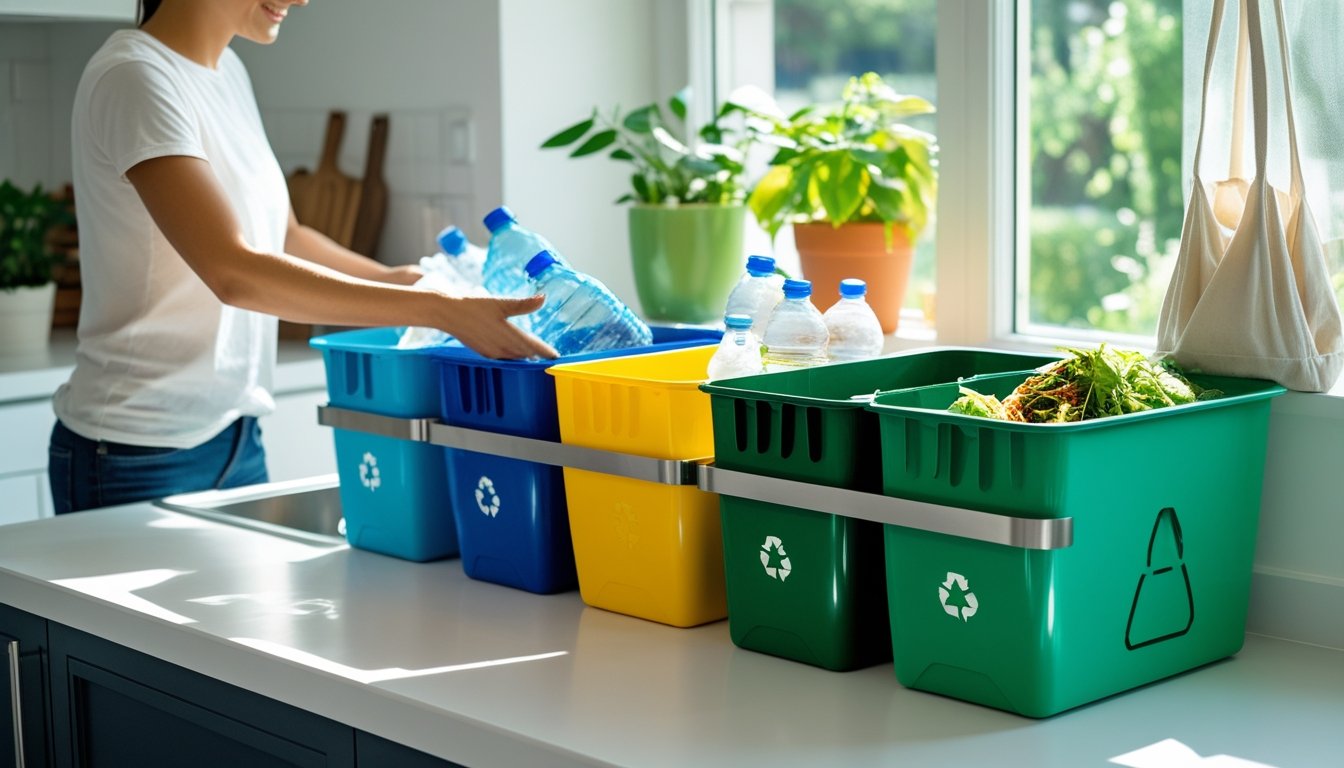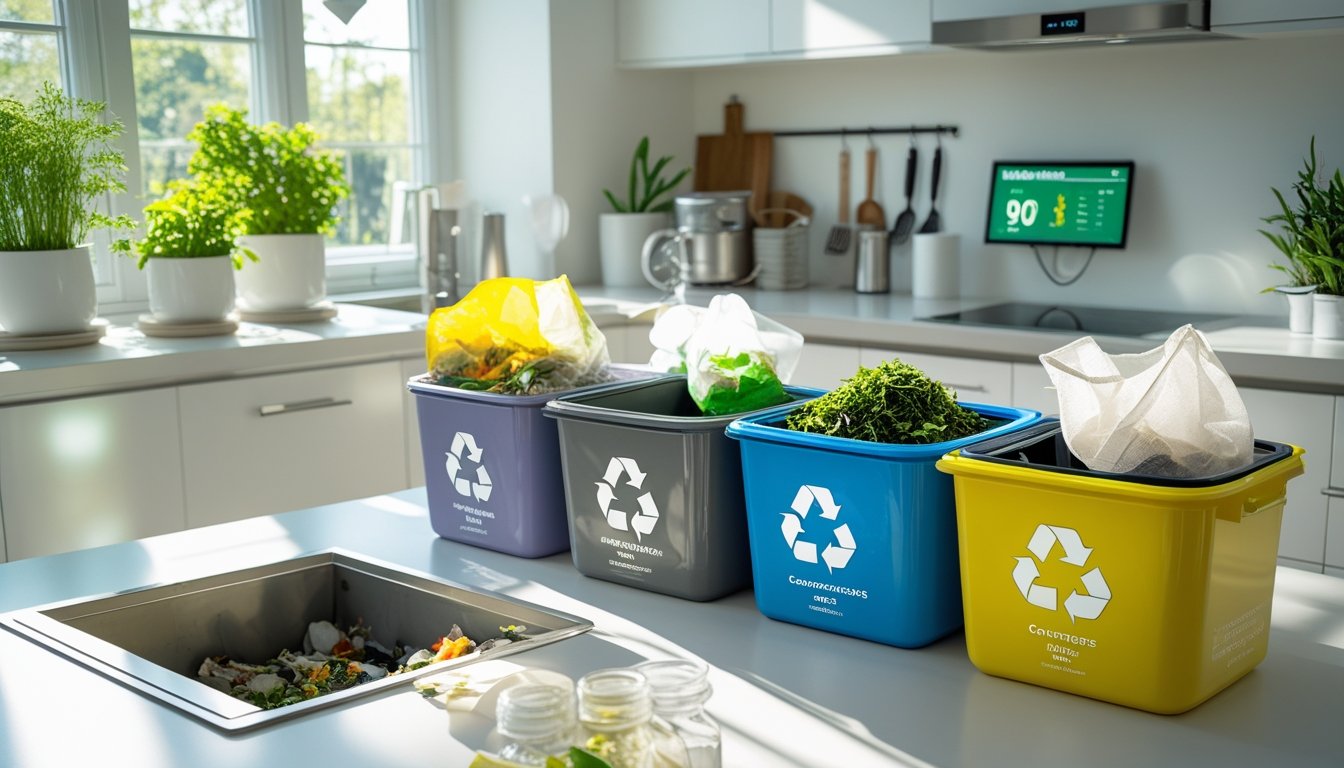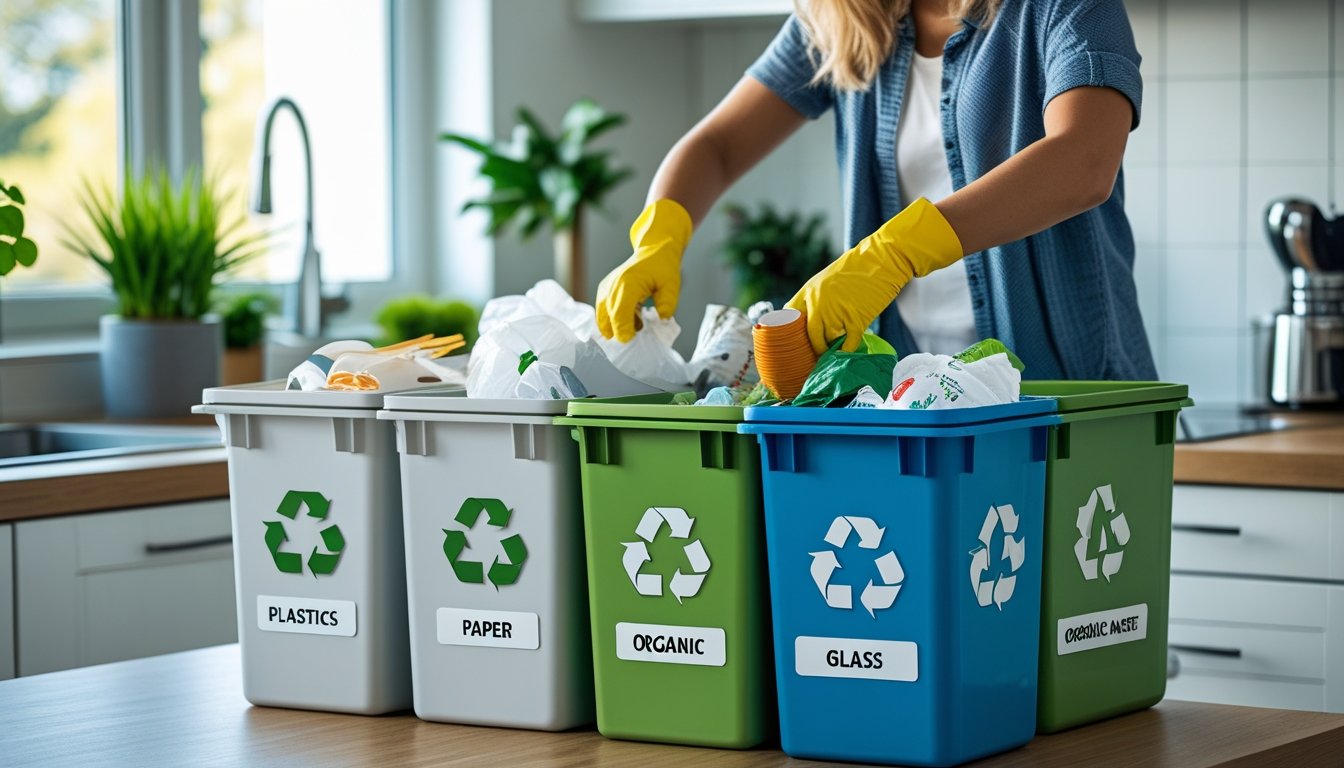Late updated: 24 Oct 2025 09:10
Written by: Sarah Hollister
Creative Solutions For Managing Household Waste: Innovative Approaches
Managing household waste creatively is an essential part of maintaining a sustainable lifestyle and contributing to a healthier planet. By adopting innovative waste management techniques, we can reduce the environmental impact of our daily lives while also enhancing our eco-footprint. From reusing everyday items to embracing new sustainable practices, these small actions can make a significant difference.

Exploring the realm of waste management reveals many opportunities to transform our homes into greener living spaces. Whether it's discovering new methods to compost kitchen scraps or implementing advanced recycling techniques, the possibilities are both varied and practical. Our journey is as much about learning innovative methods as it is about cultivating habits that ensure a sustainable future for generations to come.
The benefits of embracing creative waste management solutions extend beyond environmental preservation. These strategies can also lead to cost savings and provide an opportunity for family members to engage in meaningful environmental conversation. By focusing on these methods, we nurture not only our planet but also our understanding of sustainable living.
Key Takeaways
- Implementing creative waste solutions reduces environmental impact.
- Modern techniques enhance sustainability at home.
- Small changes lead to long-term benefits for both planet and household.
Key Creative Solutions for Managing Household Waste
Managing household waste demands innovative approaches to lessen environmental impact. Creative solutions like composting, smart recycling, and reducing packaging waste offer tangible benefits. Let's explore these methods in further detail.
Innovative Composting Methods
Composting is a pivotal strategy in reducing landfill waste by turning organic waste into nutrient-rich soil. Traditional composting uses kitchen scraps and yard waste, breaking them down over time.
For those seeking innovation, vermicomposting is an excellent choice. This involves using worms to accelerate the decomposition process and produce compost faster. Bokashi composting offers another approach, using a fermentation process to break down waste without odour.
In urban settings, apartment dwellers can consider indoor composters. These small-scale systems effectively manage organic waste without requiring garden space.
Smart Recycling Strategies
Recycling plays a crucial role in waste reduction. By sorting recyclables correctly, we prevent contamination of materials like paper, glass, and metals. Curbside recycling is commonly available, yet not all items meet recycling criteria.
Local facilities often host special recycling days for electronics and hazardous materials. Additionally, creative swapping or repurposing initiatives keep items out of the landfill. Embracing these strategies helps us uphold our environmental responsibilities by diverting waste to appropriate recycling streams.
Creative Ways to Reduce Packaging Waste
Packaging waste constitutes a large portion of household rubbish. Simple changes can significantly reduce this burden. We can bring our own reusable shopping bags and produce bags to minimise plastic bag use.
Opting for products with minimal packaging or buying in bulk helps decrease packaging waste. An emerging trend is using beeswax wraps instead of cling film. These wraps are reusable and biodegradable, serving as a sustainable alternative for food storage.
Alternatives to Single-Use Plastics
Single-use plastics are pervasive, but several alternatives exist. Items like reusable water bottles and coffee cups drastically cut down on plastic waste. Many cafes and businesses now encourage patrons to bring their own cups, reducing reliance on disposables.
Using metal or silicone straws instead of plastic ones offers another effective measure. We can also choose personal care products packaged in reusable or biodegradable materials, such as bamboo toothbrushes and bar shampoos. Adopting these alternatives supports waste reduction and promotes a more sustainable lifestyle.
Modern Waste Management Techniques and Sustainable Lifestyle Choices

As our understanding of waste management advances, modern techniques and sustainable lifestyle choices emerge as vital components for environmental protection. Through responsible electronic waste disposal, creative reuse of household items, and the adoption of sustainable products, we aim to address climate change and reduce landfill contributions.
Responsible Electronic Waste Disposal
Electronic waste, or e-waste, includes discarded electronic products like computers, phones, and appliances. Proper disposal is essential as these items contain hazardous substances that can contaminate the environment. The Environmental Protection Agency (EPA) recommends using certified e-waste recyclers to ensure these materials are handled correctly. We can also donate functional electronics, reducing waste and supporting those in need. This proactive approach conserves resources and minimises environmental harm.
Repurposing and Upcycling Household Items
Repurposing involves finding new uses for items that might otherwise become waste. Upcycling takes this a step further, transforming products into something of higher value or quality. For instance, glass jars can be turned into storage containers, while old clothes can become cleaning rags or even quilts. This practice encourages creativity while reducing landfill waste. By repurposing and upcycling, we reduce our household's environmental footprint and contribute to a sustainable future.
Adopting Reusable and Sustainable Products
Shifting from disposable to reusable products significantly impacts waste reduction. Items like menstrual cups, cloth shopping bags, and stainless steel water bottles offer practical alternatives to single-use products. These sustainable choices are not only cost-effective but also reduce plastic waste and greenhouse gas emissions linked to manufacturing. By integrating these products into our daily lives, we embrace a sustainable lifestyle and actively participate in climate change mitigation efforts.
Frequently Asked Questions

Managing household waste involves adopting effective strategies like recycling various materials, setting up home composting systems, and repurposing everyday items creatively. Engaging family members in sustainable practices can significantly help in waste reduction.
What are the most effective methods for reducing household waste?
Effective methods include reducing consumption, recycling, and practising composting. By purchasing items with minimal packaging and opting for reusable products, we can cut down waste significantly.
How can one implement composting at home to manage organic waste?
We can start composting by collecting organic waste like fruit peels and vegetable scraps in a compost bin. Simple backyard composting or using compost tumblers can turn these scraps into nutrient-rich soil.
What are the best practices for recycling different materials in the home?
Sorting materials is key. We should separate paper, plastics, glass, and metals. Labels need to be checked for recyclability, ensuring items are clean and dry before placing them in appropriate bins.
Can you suggest some innovative ways to repurpose everyday household items?
Jars can become planters or storage containers. Old clothes may be transformed into cleaning rags or tote bags. Using creativity to reimagine simple items helps reduce our waste footprint.
What role does minimalism play in reducing the amount of waste generated by households?
Minimalism encourages us to own only essentials, reducing both purchasing and waste. By focusing on quality over quantity, we lessen clutter and lower our environmental impact through thoughtful consumption.
How can families engage in sustainable waste management on a daily basis?
Families can involve every member in tasks like sorting recyclables, reducing packaging, and composting. Establishing routines that prioritise sustainability strengthens communal efforts towards effective waste management.
